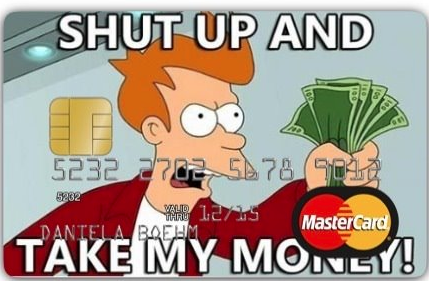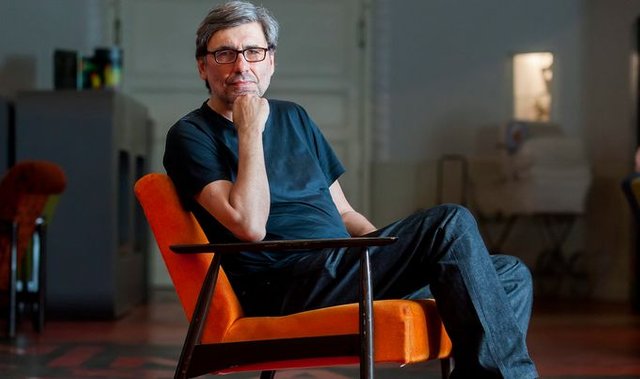The Psychology of Paying by Credit Card vs Cash
(What about paying by cryptocurrencies?)

[MIT Professor Drazen] Prelec asked five hundred students on the MIT campus to make sealed bids for a silent auction for a sold-out basketball match.
Half were asked to use cash; and half, cards. Prelec had an instinct that the credit-card bids would be higher, but the degree to which they were higher blew him away.
The credit-card bids were on average twice as high as the bids made with cash.
Some were six times higher.
The cash bidders simply refused to part with their money, whereas the card bidders saw no limit on what they should spend.

Prelec was stunned. ‘That’s got to be crazy, right? It suggests the psychological cost of spending a dollar on a credit card is only fifty cents.’
This is because credit cards give the pleasure of buying with none of the pain. ‘The moral tax gets blurred. When you’re consuming, you’re not thinking about the payments, and when you’re paying, you don’t know what you’re paying for.’
The psychological self-delusion that credit cards are a free lunch is so strong, Prelec said, it is the reason most debit cards carry a credit-card logo. ‘The logo alone is a powerful inducement to spend. Consumers get excited just seeing the logo. It’s like waving a hamburger in front of a hungry person.’

So the appeal of credit cards is clear, but Prelec wanted to know why we had such a problem paying with cash.
Is this resistance to spending cash hardwired?
Prelec set up an MRI scan with the students who had bid in the silent auction with cash and what he found out next was to change the future course of money.
When we pay for something with cash, Prelec realised, a specific neural pathway lights up. Prelec had discovered the ‘flinch moment’, the nanosecond in which we feel measurable neural pain as the brain registers the hand parting with money.
The moment we literally feel the loss.
Those bidding with cards in the experiment had felt no such pain. Only the pleasure of shopping.

Prelec’s discovery was to have far-reaching implications. Cash, he concluded, does not enable but actively hinders spending.
By removing it, and making payment instantaneous, the brain has no time to register pain.
We are released to spend without limit because it is simply too fast for the brain to catch up with the transaction.

[....]
Cash, he says, is the one thing that firmly tethers us to spending within our means.
‘You want to know how out of kilter we are with our spending?’ he tells me when we meet. ‘Try using only cash for one week. Buy everything with it. Pay your mortgage with it. Look at a thousand dollars as a mountain of cash. You will never treat money the same way again.’
'Done: The Billion Dollar Deals and How They're Changing Our World' by Jacques Peretti https://www.amazon.com/dp/B06XSSCVM2
Interesting article, thanks. I do agree with the findings. From a personal experience spending cash is much harder than handing over a piece of plastic.
There are few few people if any that pay their mortgage by cash.
My sister only spends cash (has no mortgage) but even then her rent is paid by direct debit as is her gym membership, other than those everything else is cash. Me on the other hand am a lazy dog and I pay by card always.
After listening to Max Igan , I am changing my ways, Im going CASH ONLY with a little Crypto thrown in but no more credit or debit cards.
Get to know Max Igan ( The Crowhouse http://thecrowhouse.com ). Everyone should get to know Max https://steemit.com/@maxigan and LISTEN to what he has to say. A recent show on the coming 5G network and what it means for mankind https://steemit.com/activism/@maxigan/max-igan-5g-what-s-the-deal